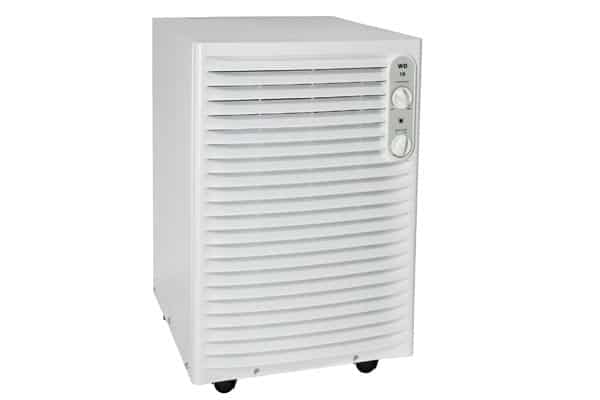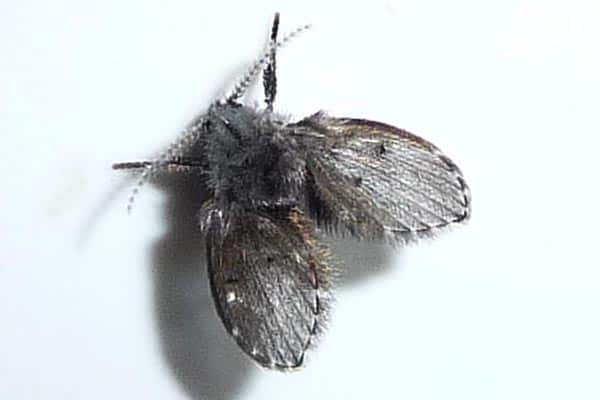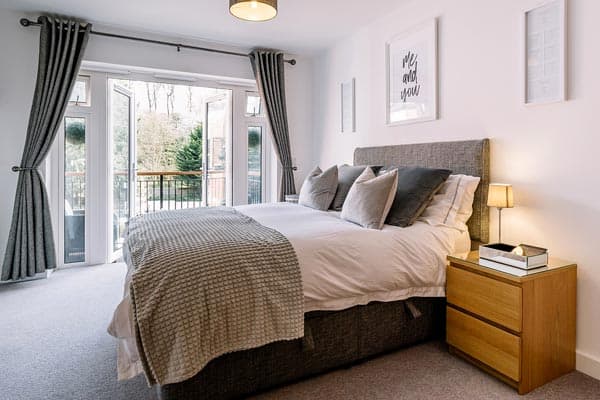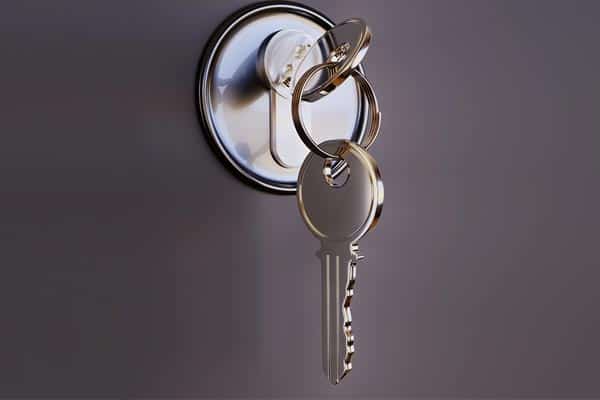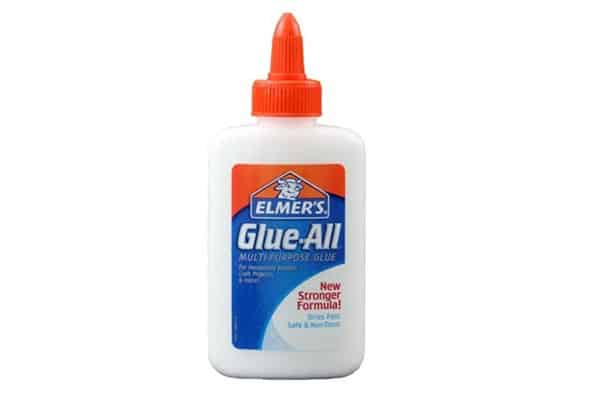How Much it Costs on Average to Run a Dehumidifier Per Day and Per Month
Do you like the thought of having a dehumidifier going to make your home more comfortable, but you’re worried about the costs?
You’re not alone because many people avoid getting one of these units because it can add an extra cost to your monthly bills. But do you know exactly how much it costs to run your dehumidifier around the clock?
How Much Does it Cost to Run a Dehumidifier?
Generally speaking, it’ll cost you between $0.03 and $0.16 per hour, depending on the size and power of the unit, as well as the humidity levels. To run a dehumidifier 24 hours a day, this cost jumps from $0.72 to $3.84 per day. The U.S. Department of Energy classifies a dehumidifier as low electricity expenditure HVAC devices, so they don’t raise the cost a lot.
If you want to narrow down your potential costs, even more, you have to realize that it depends on the type and size of the unit. Fortunately for you, there are many ways to pull humidity from your home without raising the bills.
We’ll outline the preferred run-time, average cost, how to calculate it, the purpose of this machine, tips, and tricks to reduce your prices, and more.
Should a Dehumidifier Run 24-Hours a Day?
How long you run your dehumidifier will depend on your humidity levels and the specific room size.
Newer houses will usually have slightly higher humidity, so they can benefit from running your dehumidifier for a longer period on a regular schedule.
You want to keep your relative humidity levels between 40 and 60% to prevent mold from growing and bacteria from thriving.
Once you get the humidity around 60%, you can start experimenting with different times and settings to see which ones work best for you if you don’t want to run it 24 hours a day.
Many dehumidifiers also come equipped with a humidistat and a timer, and this allows you to set your preferred levels and forget them.
The unit will run until it reaches your set levels before switching off, and there are also automatic shut-off features that prevent the bucket from overflowing and making a mess.
You can run the dehumidifier constantly without shutting it off, but just be aware that this will put a strain on the internal components, and it can shorten the product’s lifespan.
Average Cost for Running a Dehumidifier
How much you’ll pay to run your dehumidifier will depend entirely on the size of the unit.
Generally speaking, smaller or mini dehumidifiers cost roughly $25.00 a year to run. As the dehumidifier’s size goes up, so does the cost to run it.
Larger units that hold 70 pints or more can easily cost upwards of $350.00 a year. We calculated the average cost per month if you were to run a large 70-pint dehumidifier below:
Monthly Costs:
- 24 Hours Per Day – $48.00
- 12 Hours Per Day – $24.00
- 8 Hours Per Day – $16.00
- 6 Hours Per Day – $13.00
- 4 Hours Per Day – $8.00
How to Calculate Energy Costs for a Dehumidifier
How much energy your dehumidifier ends up using will depend on your current power rate and how many watts it uses when it’s on.
It can be difficult to get an exact price, but you can get a rough estimate. There are two important pieces you have to figure out before you get started:
- Total the Utility Company Charges Per Kilowatt-Hour – You can find this total by looking at your monthly bill and finding added fees. They usually add these to each kilowatt-hour.
- Power the Humidifier Draws – This is usually in watts, but not every company will use them. They can use amps or volts. If they do, you’ll multiply amps and volts to get the estimated wattage and divide the watts by 1,000 to get kilowatts.
How Much it Costs to Run a Dehumidifier Per Month
If you have heavy humidity levels in your apartment that are making it hard to breathe, say you buy a 30-pint dehumidifier with a 300-watt rating on it. You’re going to run it for 10 hours every day, and we’ll assume that the price is $0.1 kWh.
So, your dehumidifier will cost roughly $0.03 per hour to run, and running it for 10 hours a day will cost #8.40 a month if you run it Monday until Sunday. If you want to drop to six hours a day, you’ll pay $5.04 a month.
How Much it Costs to Run a Dehumidifier Per Day
The same general rules apply if you’re going to estimate daily costs over monthly costs. Say in this example that you decide to buy a bigger 50-pint unit that has a 500-watt rating, and your electrical costs are $0.1319.
You’ll pay roughly $0.07 per hour to run this dehumidifier, and you can see how the rate goes up when you buy a larger unit.
If you want to run it for 10 hours, you’ll pay $0.70 every day. If you cut this time down to six hours a day, you’ll pay $0.42.
Energy-Star Dehumidifiers Help You Save Money
You should consider getting a dehumidifier that is Energy-Star certified because it can save you up to an impressive 30% on your monthly electricity bill. Every dehumidifier has a capacity that they measure by how many points of moisture it’ll pull from the air every day.
The Energy Star rating will divide these units into two categories based on the capacity levels. The dehumidifier will then have several tests before getting assigned an energy factor.
This basically tells you how much water the unit can remove for every kilowatt-hour of energy it uses. The two categories are:
- Product Capacity is less than 75, the Energy Factor has to be greater than 1.90
- Product Capacity is between 75 and 185, the Energy Factor has to be greater than 2.80
Most homes usually need an Energy Factor value between 1.90 and 2.00. There are commercial-grade dehumidifiers that are between 2.50 and 4.00 for the Energy Factor, but they can easily cost thousands of dollars while removing over 130-pints of water.
Why Have a Dehumidifier
Since we’re looking at costs, it’s a good idea to consider why you’d want a dehumidifier in the first place. Here’s a quick rundown of a few different aspects:
Lowers Humidity Levels
Reducing the moisture content in your indoor air is the biggest goal. The best humidity ranges between 35% and 50%.
If you have humidity that is around or above 60%, it can quickly lead to illness, dampness, and the perfect environment for bacteria and mold growth.
Gets Rid of Mold
Mold and mildew love to grow and thrive in areas that are damp and warm, especially the basement. Moisture levels also invite bacteria to the area, and this isn’t good for your health.
If you think you have mold or mildew, getting and running a dehumidifier can remove the excess moisture and kill them in the process.
Stops Further Water Damage
If you’ve had a water leak that caused damage to your floor, ceiling, or walls, drying it up can be a big challenge.
Fortunately for you, your dehumidifier will draw in the water from the air, and this can create a dry environment where you don’t have any further ongoing issues with water damage.
Tricks and Tips for Reducing Your Costs
There are several small things you can do to help reduce the dehumidifier’s upfront cost and the ongoing running costs, including:
Picking the Correct Size
You have to look at any potential dehumidifier’s capacity as pints per day. This measurement will tell you exactly how much moisture it can pull from the air every day.
If you pick out one that is too small for your home or room, it’ll have to work longer and harder to give you the same results, and this will drive your bill up.
Utilize Natural Air Circulation
One of the biggest causes of high indoor humidity is that the air gets trapped and has nowhere to go.
You can help your dehumidifier be more efficient by opening windows or putting fans around the room to encourage air circulation. The circulating air will drive the humidity to your machine, making it easier.
Get Moisture Absorbers
Desiccants are great for helping pull moisture from the air. You should use them to help lower your humidity levels and help your dehumidifier. You’ll only plug it in when you have to recharge it, and this saves you running costs.
Bottom Line
Running a dehumidifier around the clock shouldn’t be a huge addition to your energy bill unless you get a bigger unit.
We’ve outlined how you can calculate a rough estimate of your costs, why an Energy-Star rating is important, and a few things you can do to help reduce your costs.
Following these steps will allow you to run your dehumidifier without skyrocketing your bills
